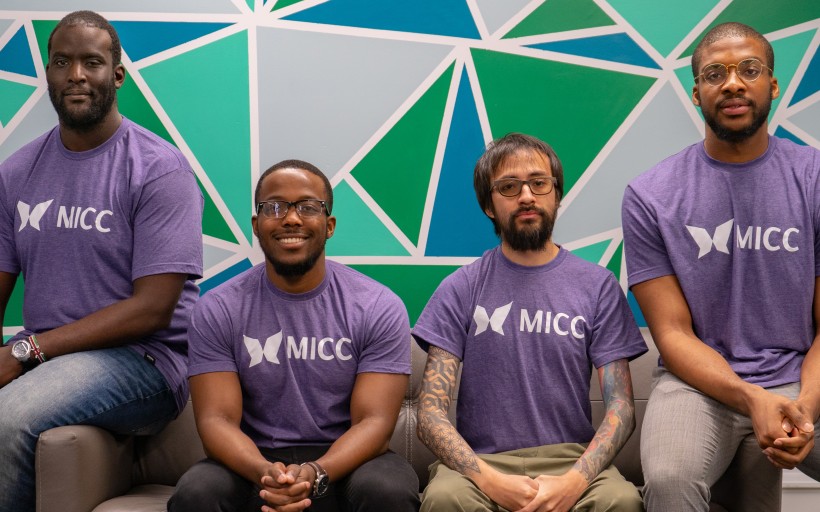When Jonah Chininga moved to Canada in 2014, he was surprised by how difficult it was to find his financial footing. But this challenge would eventually lead to the creation of a new fintech company MICC Financial.
Arriving from Zimbabwe to study accounting and business management at the University of Prince Edward Island, Chininga struggled to afford Canada’s high cost of living. The problem was compounded by his limited credit history, which interfered with his ability to tap into affordable debt instruments.
Inspired by a process called rotational savings – popular in developing regions, such as Africa and the Middle East – Chininga and fellow UPEI alumni Daniel Ohaegbu, Sergio Fernandez and James Muhato saw an opportunity to help economically marginalized people access financial services.
“As an immigrant, I could see the challenges that are there in terms of integrating yourself into the financial system,” said Chininga in an interview. “We asked ourselves, ‘Okay, how can we improve access to credit for immigrants or college students, international students?’”
The concept of rotational savings refers to a group of people pooling their money and taking turns to borrow from the collective fund without paying interest.
In the wake of a 2019 trip to the Youth Assembly leadership conference in New York, Chininga and his business partners decided to create a financial services platform that would bring rotational savings to the Canadian market in a digitized form.
The result was Charlottetown-based MICC Financial – an IOS, Android and web app meant to be used by groups of friends as an alternative to predatory lenders like payday loan companies.
Venn's Ismach Aims To Grow Fintech in Atlantic Canada
Chininga said that borrowing via the app counts towards users’ credit histories, potentially increasing their ability to eventually access more mainstream forms of debt.
The system is based on the premise that people with pre-existing social ties will usually behave responsibly towards each other, which reduces or eliminates the need for collateral.
“We are trying to use social equity as collateral to reduce credit risk,” said Muhato. “Because if I know my friends, I won’t default on my friends. ... We allow people to be accountable to one another.”
MICC began testing its software in May and launched an open beta in June. Twenty-four users have signed on, each of whom is engaging in an average of $100 worth of transactions every two weeks for a cumulative total of $4,800 so far.
A full-scale launch is slated for Sept. 8 and Chininga’s team has generated a waitlist of about 76 people via its nascent email marketing campaign.
Chininga, Ohaegbu and Muhato have inked a partnership deal with the UPEI student union and launched a financial literacy podcast to help promote MICC.
And to help with software development, they have hired their first employee. Chininga said that more hires on both the sales and development sides of the business will come later this year if the team meets its growth targets.
Because MICC is not involved in securities trading, federal regulator FINTRAC considers it a financial services company, rather than a bank, said Chininga. He added financial service providers face a less complex regulatory environment than banks.
Chininga and his partners have participated in accelerators Venn Innovation, the New Brunswick technology hub, and the Startup Zone in P.E.I.
“That was very helpful to us,” said Muhato of the accelerators. “It was useful in establishing… our communication and messaging in terms of how to position ourselves in the market.”
MICC has received a $25,000 startup grant from Toronto’s MaRS startup support centre and is eyeing a loan from Impact Atlantic.
In August, the team also announced that it had integrated Vancouver-based payment processing










